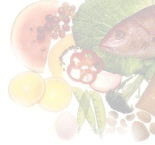Foodcounts food diary system of nutrition monitoring (draft)
![]()
Foresight, the government panel on future technology, warns that our changing lifestyles are affecting attitudes towards food and that this has an adverse impact on public health. Foresight concludes there is a lack of easy-access to essential information on food issues. Foresight also identifies serious gaps in the span and scale of this information
The strength of the Foodcounts proposed system is in:-
- originating a radical change in the range and depth of this food-knowledge
- introducing a new concept in methods of knowledge enquiry and presentation
- offering a full choice of knowledge-delivery across all reception devices
And our business will be modelled around 4 distinct markets:-
- the top segment of the food retail market, focussing initially on the the top 5
- manufacturers of fridges, freezers, microwaves and ovens
- the health and fitness consumer market in both private and public sectors
- consumers with disabilities, particularly the blind and partially sighted
Next

![]()
Foodcounts is a multi-level food information and ordering service incorporating state of the art voice-interface. It is a complete Food Management System. To explain this, we have formulated 5 original descriptive terms:-
-
FOOD-ITEM
-
FOOD-ITEM-KNOWLEDGE
-
FOOD-ITEM-TAXONOMY
-
DATA-MANIPULATION
-
INTER-OPERABILITY
A Food-Item is any food or drink product that is sold through a food retail outlet and scanned at point of sale. Each food-item is identified from a barcode pre-printed on the package, from an in-store overprint, or taken from a manual directory in the case of unpackaged foods. Food-items of different sizes, or in multi-pack, will have unique ID's.
Food-Item-Knowledge is the combination of data-sets that provide additional information on each individual food-item, such as: *manufacturer *seller *packaging *cooking *freezing *storing *nutrition *ingredients *micro-ingredients *risk-ingredients *functional-ingredients. These data-sets combine information published by the food-item manufacturer and official government sources.
Food-Item-Taxonomy is the overall product classification system and an integral part of food-item-knowledge. The prime classification is by alpha sequence from which most large retailers have adopted a 5-tier hierarchical class of: *department, *aisle, *section, *shelf, *brand. These are in-store orientated classifications. There are a series of other potential typologies based on the data sets that make up the food-item-knowledge. These main classes are by: *ingredient(s), *portion-size, *calorie-level, *fat-level, *preparation-time, *cooking-option.
Data-Manipulation is the separation, interrogation and computation of this food-item-knowledge through multiple databases. It also includes information and message interchange.
Inter-Operability enables food-item-knowledge to be accessed by the full range of interface devices *conventional-phone,*conventional-mobile,*WAP-mobile,*3G-mobile,*PC-keyboard,*PC-voice,*PC-text-reader, *PDA's,*interactive-digital-TV,*portable-and-embedded-barcode-readers. This is also referred to as a consumer-centric approach.
In summary, Foodcounts compiles and taxonomizes the broadest span of food-item-knowledge. Foodcounts develops software that offers consumers the highest level of data-manipulation, both in terms of knowledge analysis and interaction with food-item suppliers. Foodcounts, through total inter-operability, encompasses the widest possible markets.
The interaction of these definitions are also shown in diagram form
Next
or Back
![]()
Foodcounts will operate by introducing a new concept in database construction. It will have the capacity and capability to incorporate all food-items sold within the UK. There will be 3 databases:-
FoodID™ (identity) contains the data that identifies a given food-item. Initially this will be : barcode, phonetic code (for voice interface) and food-item-taxonomy.
FoodACT™ (action data) contains the food-item-knowledge collated from individual food-item profiles. This content interacts with the FoodID™ database. It is this feature that provides the high levels of data-manipulation.
FoodXTN™ (extension) is a secure database in which consumer, retailer and manufacturer profiles can be safely stored. Access is through our proprietary CoreID™ technology. This gives us the necessary security to communicate and integrate with 3rd party databases.
Full scale inter-operability is achieved by a consumer-centric approach with particular emphasis on VoiceXML and user-interface technologies.
Next or Back
![]()
We address 4 major problems:-
-
lack of easy to understand, accessible food-item-knowledge
-
inertia of most consumers concerning food management
-
complexity of on-line food ordering
-
absence of protocols concerning data access and interchange
We achieve a number of key benefits:-
-
emergence of a national database for all UK food-items
-
vastly improved delivery system for food-item-knowledge
-
profiles of individual consumer needs satisfied by data-manipulation
-
wider disability access through inter-operability
-
new coding of food-item-knowledge connects to intelligent kitchens
-
database interaction with retailers allows more consumer choice
Next or Back
The market